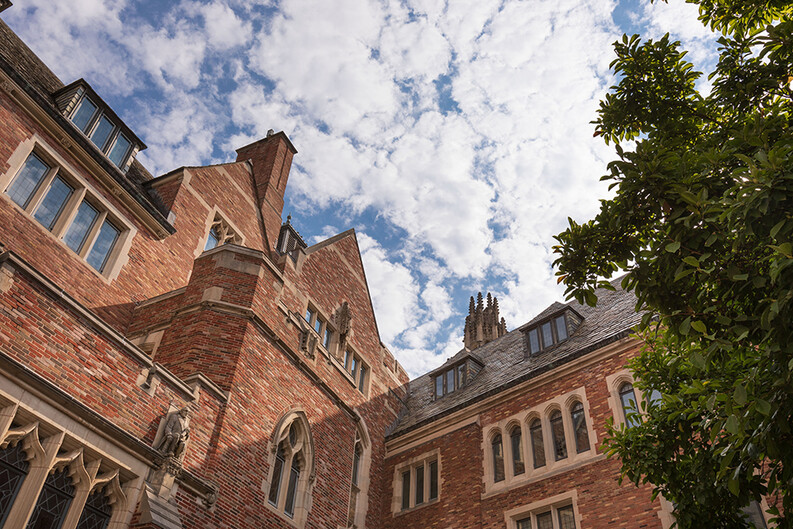Law School Team Advances to International Rounds of World’s Largest Moot Court Competition

Following victories in the qualifying rounds of the Philip C. Jessup International Law Moot Court Competition, a team from Yale Law School will advance to the international rounds next week where they will take on opponents hailing from roughly 700 law schools in 100 countries and jurisdictions.
Hosted by the International Law Students Association (ILSA), the competition presents a fictional international dispute to students who must argue their case before the International Court of Justice.
This year’s dispute “concerns traitors and crooks, and raises issues related to the right to political expression, statelessness, the right to a nationality, and the scope of the U.N. Security Council’s authority in the pacific settlement of disputes,” according to ILSA’s website.
“The competition thus far has been intense and exhilarating,” said Declan O’Briain ’24, a member of the Yale team. “Each round has presented unique challenges, pushing us to think critically and creatively in advancing our arguments. The case we argued delved into various aspects of nationality, including statelessness. It required us to navigate complex legal frameworks, examining issues such as the rights of stateless persons, the responsibilities of states towards them, and the implications of international treaties and customary law on these issues.”
Mary Szarkowicz ’25, another member of the team, said the experience provides excellent insight into the applications of law, particularly international law.
“Being on the team has improved my ability to think and respond on my feet and to tell a story out of seemingly disparate international law concepts,” said Szarkowicz. “International law, in particular, can seem abstract, but working on the Jessup problem was a great exercise in how international law can be applied.”
In addition to honing crucial lawyering skills, students are developing meaningful relationships with their law school peers through the experience.
“The best part of the Jessup moot court experience has been getting to know everyone on the team,” said Szarkowicz. “We really bonded by working through the problem, talking each other through nerves, and exploring New Orleans [where the quarterfinal rounds were held]. I could not have asked for a better group of people to share this experience with.”
The team will compete in the international rounds being held from March 30 to April 6 in Washington, D.C. O’Briain described their time preparing as “intensive yet rewarding.”
“Our team has been diligently analyzing past cases, honing our legal research and writing skills, and engaging in mock trial sessions to refine our arguments and strategies,” he said. “Additionally, we’ve sought guidance from faculty mentors and alumni who have generously shared their insights and expertise.”
Students credited Sterling Professor of Law Harold Hongju Koh and Gerard C. and Bernice Latrobe Smith Professor of International Law Oona A. Hathaway ’97 for helping them prepare for the competition, particularly with mooting and their memorials. They also expressed gratitude for Associate Director for Foreign and International Law and Lecturer in Legal Research Lucie Olejnikova; Kee Chong ’24 LLM; Doruk Erhan ’22 LLM, ’27 JSD; Margo Darragh ’25; and Justin Cole ’23 for mooting them, as well as their coach Beatrice Walton ’18.


